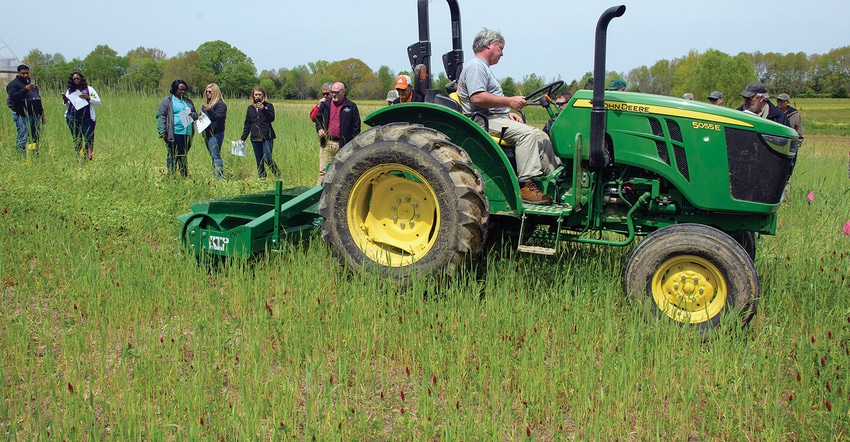June 21, 2018

Agents and specialists with the Mississippi State University Extension Service are currently the No. 1 fans of using cover crops, but farmers will soon surpass their enthusiasm after realizing the value of adopting this management practice.
“Cover crops can improve soil health, help control erosion, aid in nematode management and protect water quality,” said Bill Burdine, a regional agronomy specialist based at the North Mississippi Research and Extension Center in Verona, Miss. “Some cover crops do a good job of increasing carbon and organic matter in the soil, along with microbes that are feeding the next cash crop.”
Burdine oversees a Sustainable Agriculture Research and Education cover-crop grant to educate and equip Extension agents and National Resource and Conservation Service field personnel. He planted two plots, one in Lowndes County and another in Chickasaw County, to demonstrate this agronomic method.
The Extension specialist said cover crops can be somewhat expensive, but an NRCS cost-share program is available. The long-term economic benefits are also important factors.
“Most growers can recoup 75-90 percent of the expenses to plant the cover crop,” he said.
Webster County Extension agent Lisa Stewart took part in the training. She said knowledge is power; for growers, power is money.
“Cover crops are not a new concept, but many of our growers have forgotten the value cover crops offer,” she said. “The training and these demonstrations provide us with some of the key points we need to share with growers who are not taking advantage of this agronomic method.”
Stewart said she also appreciated the opportunity to interact with NRCS personnel during the training.
“Our counties benefit anytime Extension agents and NRCS staff can train together,” she said. “We both learn more about the other agencies and what we bring to the table to help landowners and farmers.”
Burdine said training participants received three-ring binders and jump drives with information, as well as access to the demonstration plots. The grant will allow training to continue next year. For more information on cover crops, contact the local Extension office.
About the Author(s)
You May Also Like






